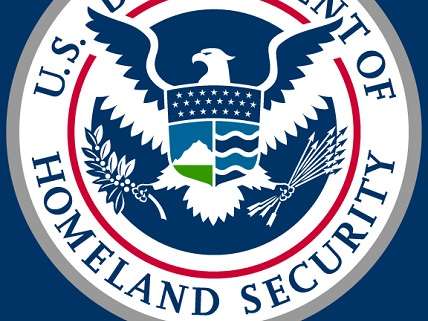Federal Agent Thinks Dad Taking Picture of Daughters Is Sex Trafficking


Every summer for the past 14 years, Jeff Gates has taken a picture of his two daughters hugging on a ferry boat as they travel to their summer home on the Jersey Shore. This year, as he was completing the annual ritual, a stranger came up to him and said, "I would be remiss if I didn't ask if you were okay."
He was talking to the daughters. It took a minute before Gates realized what the stranger meant by the comment. As he recounts in The Washington Post:
At first none of us understood what he was talking about. His polite tone and tourist attire of shorts, polo shirt and baseball cap threw us off. It took me a moment to figure out what he meant, but then it hit me: He thought I might be exploiting the girls, taking questionable photos for one of those "Exotic Beauties Want to Meet You!" Web sites or something just as unseemly. When I explained to my daughters what he was talking about, they were understandably confused. I told the man I was their father. He quickly apologized and turned away.
Gates and his wife had adopted the girls from China, making the Gates a mixed-race family. Should that automatically set off warning signals? Gates thought no. So, after a time, he tracked the man down and confronted him:
I walked outside to where he was standing and calmly said: "Excuse me, sir, but you just embarrassed me in front of my children and strangers. And what you said was racist."
The man didn't seem at all fazed. He replied: "I work for the Department of Homeland Security. And let me give you some advice: You were standing there taking photos of them hugging for 15 minutes."
And there we have it: He's from Homeland Security. He is paid by the government to suspect the very worst at all times and butt in.
When the government is telling Americans that we should be on guard against everyone, everywhere, at all times ("If you see something, say something"), it might start to seem plausible—likely, even—that a sex trafficker would take photos of his sex slaves, in public, for 15 minutes. In reality, of course, that's absurd.
A week later, on the ferry ride home, as my oldest and I were walking on deck, I suggested that we imagine the other passengers through this man's eyes. She grimaced but agreed. It was so easy to project suspicious stories onto the white woman trying to grab a black child — instead of seeing a mother running after her son. Or to suppose that an old man was taking inappropriate photos of a young girl — instead of seeing a grandfather capturing a special moment with his granddaughter. We talked about this as we walked around the deck.
The deliberate decision to engage in worst-first thinking—thinking of the very worst case scenario first and proceeding as if it's likely to happen—is not only what gets fathers treated like traffickers, it also gets moms arrested for letting their kids play in the park ("What if the child was kidnapped?") and other parents arrested for letting their kids wait in the car for ten minutes ("What if they left them there all day?").
Worst-first thinking, the authorities say, is the kind of thinking that makes us safe and secure. And I say it makes us paranoid and cruel.
